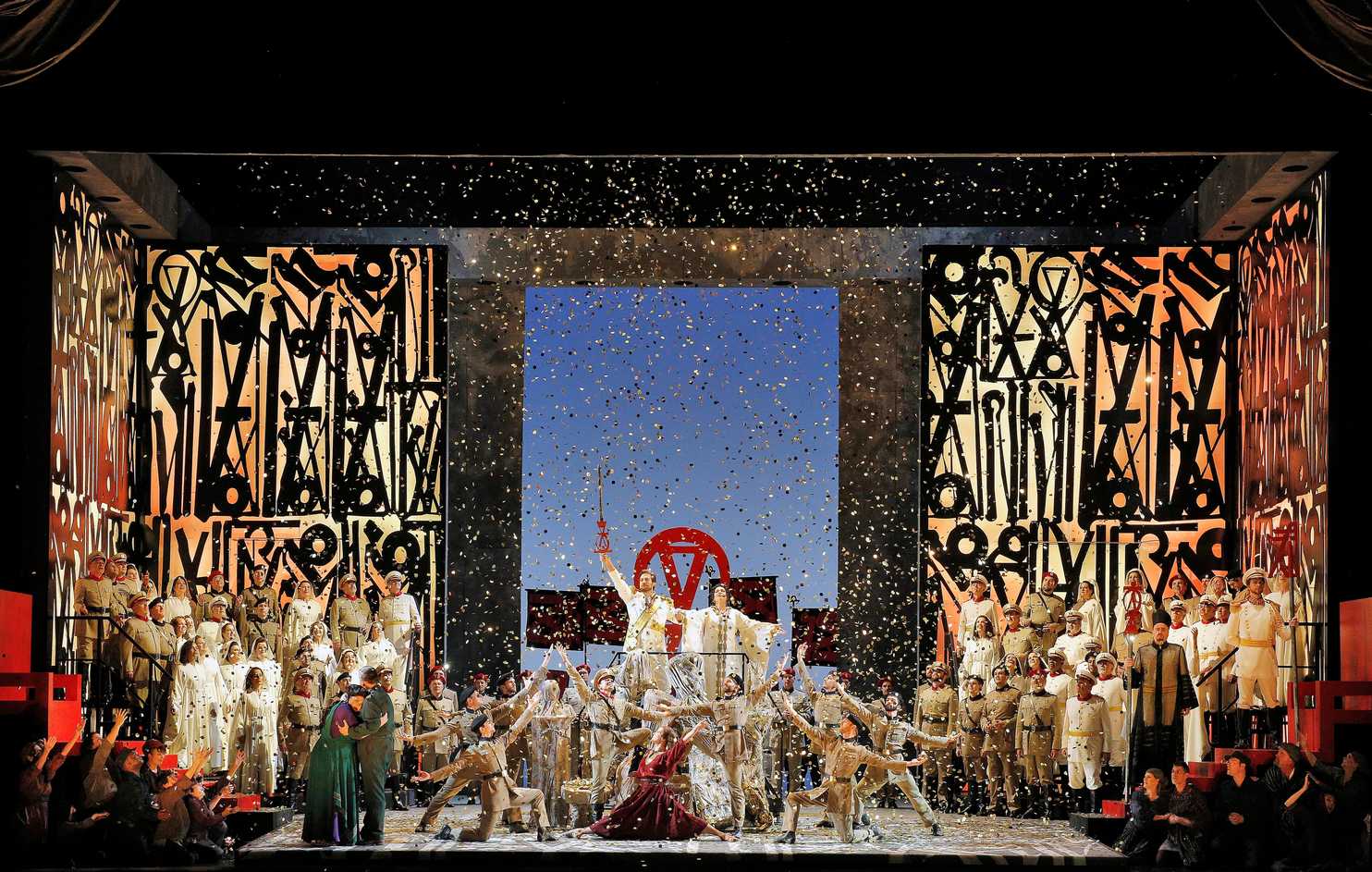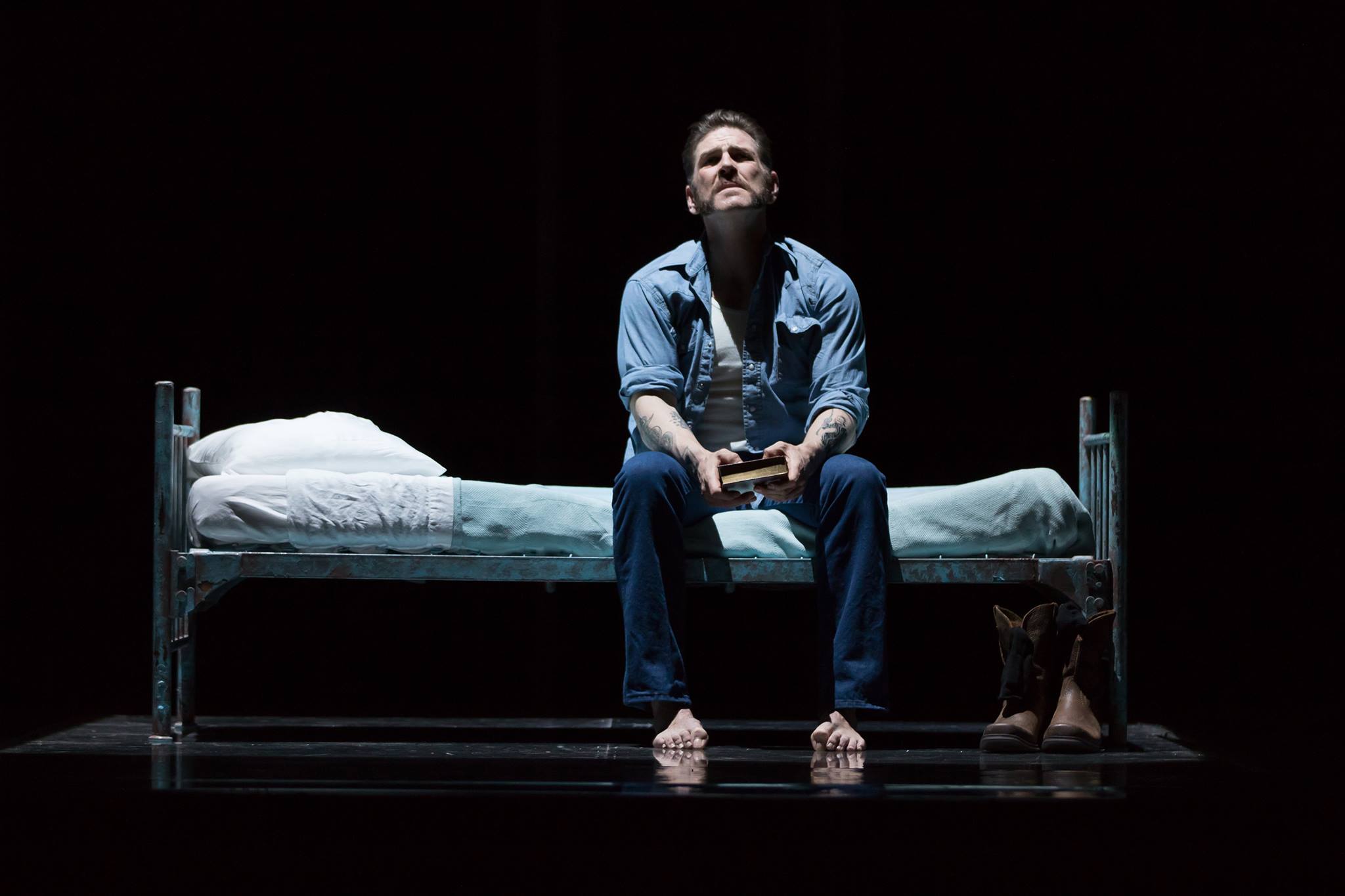Aida Gets Its Due

Of all the great Verdi operas, Aida is the one that most frequently disappoints. That's not the case here -- WNO's production succeeds across the board.
The opening night cast of Washington National Opera's new Aida soared in a striking co-production that's already appeared in San Francisco and heads to Seattle next year (then on to Minnesota). The set designs inspired by the street artist Marquis Lewis (aka RETNA) and executed by Michael Yeargan are a constantly absorbing, often striking puzzle made up of abstract hieroglyphs, slashing lines, and sharp shapes that read like a graffiti artist's dazzling interpretation of cuneiform. The production's design has garnered a lot of attention for its success at creating a new look for an opera that's been endlessly staged with limited imagination: most productions stick to the visual parameters and cues of the opera's ancient Egyptian setting, and usually ending up with something too obvious, too busy, and too often just silly looking. That's certainly not the case here, but to go on about the visuals at length would detract from the real delights on offer here, which come from an exceptionally good cast.
As Radames, the South Korean tenor Yonghoon Lee has some minor intonation issues early on, but overall his singing here is exceptional, especially in the duets and ensembles. While there's not much chemistry flowing between him and Tamara Wilson's Aida, his scenes with Ekaterina Semenchuk's Amneris are convincing (especially in Act 4's "Gia i sacredoti"), and he transcends the role's inherent dramatic limitations. Wilson, unfortunately hampered by the only horrible costume on stage, brings pathos and genuine emotion to the role. She nailed the Act 2 opener "Chi mai fra gl'inni," and her face off with Semenchuk in "Fu la sorte" had palpable drama. Her lack of chemistry with Lee didn't prevent them from making a potent vocal combination during "Pur ti reveggo."
As good as Lee and Wilson are, it's the mezzo-soprano Semenchuk that delivers the most remarkable performance as Amneris. For decades it seemed this role was owned by Dolora Zajick, and now it looks like her replacement has been found. She's a model Verdian singer, but she also brings a depth to the unlikeable character that makes it impossible to turn one's attention from her when she's onstage, even within the large ensembles. In the smaller roles of Ramfis and the King, Morris Robinson and Soloman Howard stood out, garnering justified hearty applause during the curtain calls.
Thanks to Evan Rogister's conducting the voices of the principals were always easy to hear above the orchestra. That welcome support came at the expense of a big sound, and one without much dramatic oomph, even during the triumphal march, but it seemed a fair trade-off given how well it supported the cast and chorus, who also deliver a stand-out performance. Not to be overlooked, especially because they're usually dreadful, are the marvelously choreographed ballet scenes by Jessica Lang. I usually dread their arrival, but here they were a delight, especially the children, and for once the ballets felt like an organic part of the whole.
WNO's Francesa Zambello directs with an emphasis on the emotions centering the plot's love triangle, but doesn't stand in the way of letting Aida be the grand Verdi spectacle everyone wants to see. It's a smart approach that works - this is easily the best Aida I've seen.
Aida runs through September 23 at the Kennedy Center Opera House with an alternating cast that includes Leah Crocetto as Aida, Carl Tanner as Radames, and Marina Prudenskaya as Amneris. It runs about 3 hours with one intermission. In Italian with English surtitles. Get tickets here.
Read the review of the second cast here.





